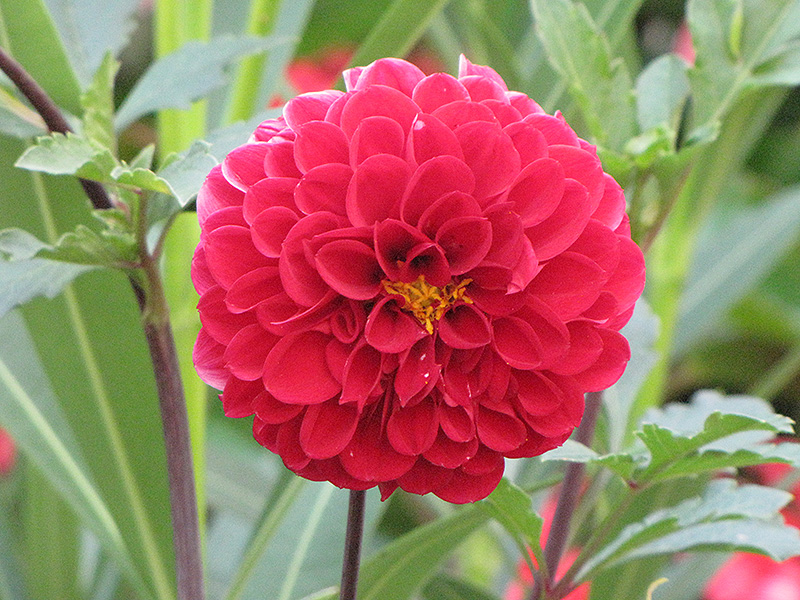>> Home
Height: 4 feet
Spread: 24 inches
Sunlight:
![]()
![]()
Hardiness Zone: 8b
Description:
Compact, cone shaped petals form spherical, ruby red blooms in summer and persist until first frost; wonderful along borders or in containers
Ornamental Features
Cornell Dahlia features showy fully double ruby-red ball-shaped flowers at the ends of the stems from mid summer to early fall. The flowers are excellent for cutting. Its pointy leaves remain green in color throughout the season.
Landscape Attributes
Cornell Dahlia is an herbaceous perennial with an upright spreading habit of growth. Its medium texture blends into the garden, but can always be balanced by a couple of finer or coarser plants for an effective composition.
This plant will require occasional maintenance and upkeep, and should be cut back in late fall in preparation for winter. It is a good choice for attracting bees and butterflies to your yard. It has no significant negative characteristics.
Cornell Dahlia is recommended for the following landscape applications;
- Accent
- Mass Planting
- General Garden Use
- Container Planting
Planting & Growing
Cornell Dahlia will grow to be about 3 feet tall at maturity, with a spread of 24 inches. The flower stalks can be weak and so it may require staking in exposed sites or excessively rich soils. It grows at a medium rate, and under ideal conditions can be expected to live for approximately 10 years. As an herbaceous perennial, this plant will usually die back to the crown each winter, and will regrow from the base each spring. Be careful not to disturb the crown in late winter when it may not be readily seen!
This plant does best in full sun to partial shade. It does best in average to evenly moist conditions, but will not tolerate standing water. It is not particular as to soil pH, but grows best in rich soils. It is somewhat tolerant of urban pollution. Consider applying a thick mulch around the root zone in winter to protect it in exposed locations or colder microclimates. This particular variety is an interspecific hybrid. It can be propagated by division; however, as a cultivated variety, be aware that it may be subject to certain restrictions or prohibitions on propagation.
Cornell Dahlia is a fine choice for the garden, but it is also a good selection for planting in outdoor pots and containers. With its upright habit of growth, it is best suited for use as a 'thriller' in the 'spiller-thriller-filler' container combination; plant it near the center of the pot, surrounded by smaller plants and those that spill over the edges. It is even sizeable enough that it can be grown alone in a suitable container. Note that when growing plants in outdoor containers and baskets, they may require more frequent waterings than they would in the yard or garden.
This plant is not reliably hardy in our region, please use with caution in areas where hardiness is a factor.
